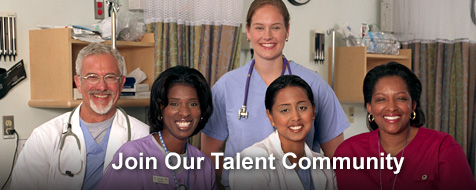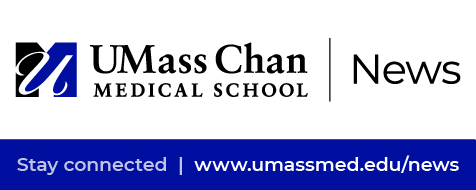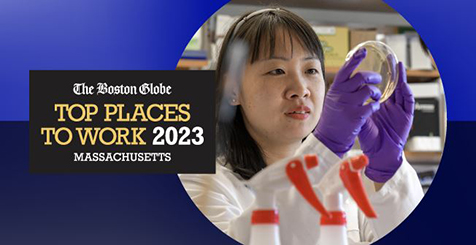
and Advance with Us.
SEARCH CAREER OPPORTUNITIES
When you join the UMass Chan Medical School team, you join us in advancing together to improve the health and well-being of our diverse communities throughout Massachusetts and across the US and the world. Together, we lead in education, research, health care delivery, and public service. Your life’s work is more than a career. It’s an expression of your passion, intellect, skill, and drive. UMass Chan's commitment to excellence, innovation, competitive benefits, and work-life integration will allow you to build a professionally rewarding career as we work together to better or improve the health of people around the globe.
Category: Other
Location: Worcester, MA
Shift: Day
Exempt/Non-Exempt: Exempt
Business Unit: SCHOOL
Department: School - Development Executive Office - W400100
Job Type: Full-Time
Union Code: ..
Num. Openings: 1
Post Date: March 12, 2015
THE ORGANIZATION
The University of Massachusetts Medical School
When the University of Massachusetts Medical School (UMMS) was inaugurated in 1969, an academic university medical center was established at the same time, the UMass Medical Center. The MedicalSchool’s faculty serves as the medical staff of this facility. Academic advancement has been a driving force for the faculty of the University of Massachusetts. Over the last 10 years, UMMS has advanced to 18th nationally in NIH funding in the basic sciences, and is now one of the nation’s top 50medical schools in funding for clinical studies. The basic science and clinical faculty share in this achievement.
The University of Massachusetts Medical School (UMMS), consistently ranked among the top medical schools in the country for primary care, has established a vision to become one of the top 10 academic health sciences centers in the United States. Research growth at the institution has been significant. Total research awards have more than tripled since FY ‘94 and more than doubled in the last seven years to their current level of over $240M in FY ’13, of which $133M comes from the NIH. The medical school maintains a strong commitment to public service, including the provision of health services to vulnerable populations.
The UMMS School of Medicine is led by Dean Terry Flotte, M.D., and with Dr. Flotte in his roles as Provost and Executive Deputy Chancellor, Chancellor Michael Collins, M.D. The Worcester campus includes, in addition to the School of Medicine, the Graduate School of Biomedical Sciences and the Graduate School of Nursing. Together Dean Flotte and Chancellor Collins have led several important initiatives including redesigning the medical education curriculum and expanding clinical and translational research.
UMMS emphasizes preparation of students for careers in the primary care disciplines; the School of Medicine has garnered a national reputation for its primary care program. In 2014, U.S. News & World Report ranked UMMS in the top 5% of the nation's accredited medical schools for primary care education. The Medical School's success in training primary care physicians can be attributed in part to an educational philosophy emphasizing early exposure to community practice, beginning with the first year of medical school. The innovative new curriculum aggregates students in learning communities and encourages interdisciplinary collaboration and mentoring. Reinforcing the success and quality of the educational program are the results of the annual Match Day at UMMS, when medical students discover where they will begin their careers as doctors. Year after year the National Resident Matching Program results showed UMMS graduates accepted into some of the most competitive residency programs in the country.
Of the $233+ million in research funding that UMMS attracts annually, 80% comes from federal funding sources. This has helped to move UMMS to the leading edge of medical research in human disease and treatment. UMMS success was marked by the 2006 awarding of the Nobel Prize in Physiology and Medicine to Craig Mello, in collaboration with Andrew Fire at Stanford, for their discovery of RNA interference - gene silencing by double-stranded RNA. In addition, there are seven Howard Hughes Medical Institute Investigators, four National Academy of Sciences members, one Royal Society member, and a 2008 Lasker Awardee.
UMMS is a major force in both basic and clinical research. Among the many areas of concentration are: neurotherapeutics, HIV/AIDS, bone cell biology and prevention, cancer, diabetes, gene function and expression, molecular genetics, and RNAi. Over the last six years, Dean Flotte has built a nationally recognized Gene Therapy Center, presently engaged in pre-clinical and clinical trials in many disorders including neurodegenerative diseases (ALS, Huntington’s disease) and brain tumors. The main campus boasts the Aaron Lazare Medical Research Building, a 360,000 square foot building and Two Biotech, a 75,000 square foot research facility in the Massachusetts Biotechnology Research Park. In addition, UMMS received a $12.5 million grant from The Valley Foundation to support build-out of clinical and translational space in the new AmbulatoryCareCenter building as well as staffing and recruitment for the five Centers of Excellence: Cancer, Cardiovascular, Diabetes, and Musculoskeletal care and research. The newly established department of Quantitative Health Sciences occupies the 7th floor of the ACC. The grant provided the UMassAcademicHealthSciencesCenter with $7.5 million for the capital components of the project and $5 million to fill the building with the researchers, clinicians and equipment required to manage the programs housed within.
The essential element of the ACC which opened in the summer of 2010 is co-localized clinical care, clinical research, and clinical education in adjacent spaces on each floor to allow physician-investigators and patients to move seamlessly from where they receive treatment to where they may participate in trials of investigative therapies, making “from bench to bedside” a reality for patients.
The newest building is the Albert Sherman Center (ASC), a 512,000 square foot new research and education building. The ASC is energy efficient and environmentally sustainable and holds 350,000 sq ft for wet research, research cores, lab support, and a vivarium. The ASC supports the expansion of existing programs and substantially expanded clinical research. In addition, the ASC greatly expanded educational space and is the home for the School of Medicine and Graduate School of Nursing Learning Communities, as well as the Simulation Center and Standardized Patient Program. The school was the recipient of a $90 million appropriation from the Commonwealth of Massachusetts, backed by Governor Deval Patrick, to help fund the ASC, launching a new era in research and development, with benefits that promise to be world-changing.
The University of Massachusetts Medical School and the UMass Memorial Health Care System, together as the largest employer in the region, take seriously their mission to identify and attract leaders and staff at all levels of the organization who bring diversity to the workforce. The organizations have made it a key priority to recruit and retain diverse talent to enhance their missions of patient care, teaching and research.
UMass Memorial Health Care
Worcester, Massachusetts is one of the most consolidated healthcare markets in the country, with early penetration of managed care. In less than 15 years the Worcester market has gone from nine hospital providers to only two major providers at present, those being UMass Memorial and St. Vincent’s Hospital. St. Vincent’s is owned by Tenet Health, and has a clinical affiliation with Beth Israel Deaconess Medical Center. The primary and secondary healthcare market in Central Massachusetts is about one million people. UMass Memorial enjoys a predominant market share of the health care delivered in Worcester and the surrounding communities; however, there remains leakage of care in some areas, such as cancer to the greater Boston academic centers.
UMass Memorial Health Care is led by System President and CEO Eric W. Dickson, MD.
UMass Memorial Health Care is the largest healthcare system in Central Massachusetts. Based in Worcester, the system encompasses the complete healthcare continuum: a multi-campus tertiary and quaternary care medical center (UMass Memorial Medical Center); member and affiliated community hospitals; home health services; a hospice program; an extensive ambulatory care system with community-based health centers and community-based practices; rehabilitation and behavioral health service.
Three community hospitals are full members of the UMass Memorial Health Care: Clinton Hospital, a 41-bed facility in Clinton, Massachusetts; Marlborough Hospital, a 79-bed hospital in Marlborough, Massachusetts; HealthAlliance Hospital includes two campuses, the 150 bed Leominster Campus (Leominster, Massachusetts) and the Burbank Campus (Fitchburg, Massachusetts). Seven other community hospitals in Central Massachusetts have affiliation agreements with UMass Memorial. Each UMass Memorial hospital is fully accredited by the Joint Commission on the Accreditation of Healthcare Organizations except Clinton Hospital which is accredited by DNV Healthcare.
As a not-for-profit hospital system, UMass Memorial Health Care provides community benefits to improve health in your communities and increase access to health care. Working in collaboration with community organizations, social agencies and public health partners, UMass Memorial hospitals use combined resources and funds to plan and implement programs that meet these community needs.
UMass Memorial Health Care is committed to improving the health status of all those it serves and to addressing the health problems of the poor and other medically underserved populations. In addition, nonmedical conditions that negatively impact the health and wellness of members of the community are addressed.
The UMass Memorial Accountable Care Organization is a Medicare ACO committed to providing the Worcester and Central Massachusetts region with quality, personalized and innovative care. The Medicare ACO leverages resources to focus on providing Medicare patients (also called Medicare Fee-for-Service beneficiaries) with the best possible experience of timely, appropriate and high-quality health care services.
UMass Memorial Medical Center
Led by President Patrick Muldoon, FACHE, UMass Memorial Medical Center (UMMMC) is a 781-bed facility on two acute care campuses (University and Memorial), and an ambulatory care campus (Hahnemann), all located within a few miles of each other in Worcester. The University Campus is contiguous with the medical school. The MedicalCenter offers a full complement of sophisticated technology and support services, providing the region with specialists renowned for their work in areas such as cardiology, cancer, orthopedics, diabetes, emergency medicine, minimally invasive surgery, women’s health, and children’s medical services, including an internationally recognized newborn intensive care unit.
The MedicalCenter’s medical staff is pluralistic in nature, including 1,100 EMPLOYED members of the Medical Group, private physicians, physicians practicing in two large community health centers, and others. There are over 1,300 active medical staff of the medical center, ranging from subspecialists to approximately 370 primary care physicians.
UMass Memorial is home to LifeFlight, New England's first air ambulance. Life Flight is recognized for the excellence of its safety, quality management and employee education programs by the Board of the Commission on Accreditation of Medical Transport Systems (CAMTS). Since its founding in 1982, Life Flight has transported more than 27,000 patients in a geographic area that extends from Southern Connecticut to New Hampshire, and from Boston, Massachusetss to Albany, New York.
UMass Memorial Medical Center is home to some of the region’s most sophisticated medical technology, including the latest diagnostic and treatment options. Our experienced staff includes specialists who are leaders in their field. No matter where you receive health care within our network of hospitals, you have access to the advanced services and resources of UMass Memorial Medical Center.
Features of UMass Memorial include:
- Accreditation by the American College of Surgeons as the only designated Level I Trauma Center for adults and children in Central Massachusetts
- The Duddie Massad Emergency and Trauma Center and Life Flight, New England’s first hospital-based air ambulance
- Ranking as number one hospital in Massachusetts five years in a row for heart attack survival, according to the Centers for Medicare and Medicaid Services
- The region’s only Level III Neonatal Intensive Care Unit, providing expert care for ill or premature newborns
- The region’s only comprehensive pediatric services through the Children’s Medical Center (CMC), offering specialists in every pediatric health field from psychiatry to surgery
- A three-star rating from Consumer Reports for bypass cardiac surgery based on overall performance, complications and other quality measures
- A study published in 2013 in the journal CHEST and written by the director of UMass Memorial’s eICU found that “patients in the virtual ICUs were 26 percent more likely to survive their stay in the ICU and 16 percent more likely to survive the hospitalization as a whole and be discharged” – Boston Business Journal, December 3, 2013
POSITION OVERVIEW:
Effective development efforts will be essential to the success of our combined academic health sciences center. UMMS has now launched a search to recruit a Vice Chancellor for Development (VCD). This individual will work with the UMMS Chancellor and the UMMHC CEO, their leadership teams, and the faculty to lead all aspects of development and fundraising for both the school and the clinical system. The VCD will work with the Chancellor and Health System CEO to develop an integrated, coordinated and prioritized set of fundraising goals and initiatives to further the strategic and operational goals and objectives of both institutions.
The VCD reports directly to the Chancellor of UMMS, Michael F. Collins, MD, and serves as a member of his Senior Leadership team, and is responsible to the President and CEO of UMass Memorial Health Care, Eric Dickson, MD.
Goals and Expectations:
In the first two years, the VCD will be expected to show progress in the following areas:
- Strategic planning –prepare a development plan for both the school and the clinical system addressing all areas including endowments, capital needs, operational needs
- Strengthen the organizational structure of the Development Team. Specifically, the VCD will define, recruit for and hire two Deputy Vice Chancellors, one for the clinical system and one for the school to strengthen efforts in both organizations and as mandated in the Definitive Agreement between the two institutions
- Leadership and management – establish relationships with department chairs and directors of Programs, Centers and Institutes as well as faculty leaders in key research and clinical arenas. Be visible and approachable. Establish oneself as understanding all the combined UMass Academic Health Sciences Center has to offer as well as someone who knows the individuals behind these clinical, educational, and scientific gems
The VCD will lead the university's fundraising and development initiatives. Reports directly to the Chancellor and serves as a member of the Executive Management Council. Designs and implements a dynamic comprehensive development plan - aligned with the University's mission, vision, and goals - which will promote and enhance the university's reputation as a leader in higher education.
The VCD will have the following responsibilities:
- Focus the development plan on expanded and enhanced private, corporate, and foundation relationships
- Work on a regular basis with the University Chancellor to develop an integrated and prioritized set of fundraising goals and initiatives
- Work closely with leadership of the University Foundation and the various academic schools and departments to ensure participation in and support of the comprehensive development plan
- Work closely with the leadership of UMass Memorial Health Care to develop and pursue UMMHC fund-raising goals and strategies
- Work closely with leadership of the clinical departments and clinical entities to ensure participation in and support of the comprehensive development plan
- Oversee University-wide fundraising efforts including annual giving, major gifts, deferred and planned giving, and capital campaigns
- Provide leadership and supervision of the Development Team
- Coordinate Development efforts across the Medical School and UMass Memorial Health Care to maximize effectiveness, avoid duplication and competition
- Perform related duties and responsibilities as required
REQUIRED QUALIFICATIONS:
- Master’s Degree in related field
- 7-10 years of experience at the senior level in higher education
- Strong academic credentials, academic administrative experience in a research university environment, and the energy and vision to plan and initiate a new general campus in the traditions of excellence exemplified by UMMS
- Knowledge of cultivation, solicitation, and stewardship strategies and techniques, particularly in the area of corporate and foundation fundraising techniques
- Excellent organizational, interpersonal, and networking skills with large groups and individuals
- Ability to build, motivate and manage a strong campus team
- Ability to initiate and build relationships with prospective corporate, foundation, and private donors
- Demonstrated record of success in generating significant commitments from corporations, foundations, and private individuals
- Ability to present effectively information to internal and external groups and audiences
- Possess strong leadership experience in fundraising with expertise in the area of higher educational institutions
- Ability to carry out the essential functions of this position, with reasonable accommodation if disabled
- Travel to off-site locations required
PREFERRED QUALIFICATIONS:
- Experience in Development in a medical school or an academic medical center
PROCEDURE FOR CANDIDACY:
In order to Apply to this position please follow this link: https://academicjobsonline.org/ajo/jobs/5426
Posting Disclaimer:
This job posting outlines the primary responsibilities and qualifications for the role but is not intended to be an exhaustive list.
Duties and expectations may evolve in response to the needs of the department and the broader institution.
In alignment with our commitment to pay transparency, the base salary range for this position is listed above (exclusive of benefits and retirement).
At UMass Chan Medical School, final base salary offers are determined based on a combination of factors, including your skills, education, and relevant experience.
We also consider internal equity to ensure fair and consistent compensation across our teams.
Please note that the range provided reflects the full base salary range for this position. Offers are typically made within the midrange to allow for future growth and development within the role.
In addition to base pay, UMass Chan offers a comprehensive Total Rewards package, which includes paid time off, medical, dental, and vision coverage, and participation in a 401(a)-retirement plan, with the option to contribute to a voluntary 403(b) plan.
UMass Chan welcomes all qualified applicants and complies with all state and federal anti-discrimination laws.




